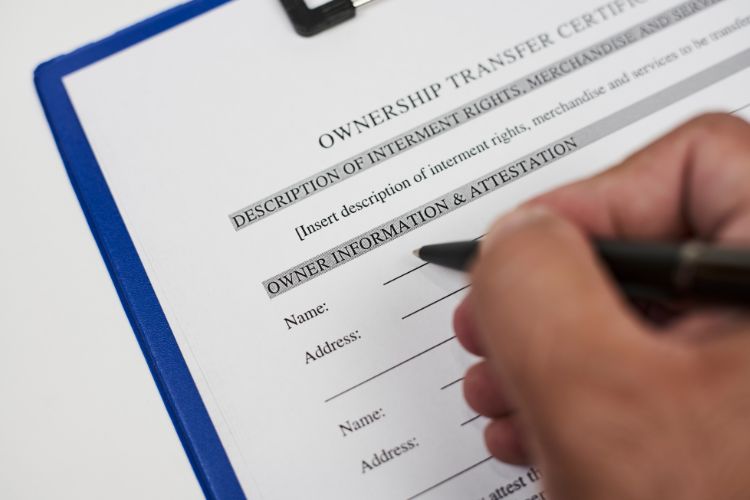When most people think of probate, they often focus on tangible assets like homes, cars, and physical property. However, intangible assets—such as stocks, bonds, intellectual property, and digital assets—are increasingly becoming a significant part of high net worth estates.
Understanding how probate affects the distribution of these intangible assets is crucial for ensuring a smooth transition of wealth and protecting your legacy.
Peabody Law Firm, located in Southlake, TX, and serving clients in Westlake, Trophy Club, Colleyville, Keller, and surrounding communities, provides expert guidance on how to manage and distribute intangible assets through the probate process.
What Are Intangible Assets?
Intangible assets are non-physical assets that often have significant financial value. These assets can be more challenging to identify, manage, and distribute during probate due to their unique nature.
Common examples of intangible assets include:
- Stocks, Bonds, and Investments: Financial investments that generate income or appreciate in value over time.
- Intellectual Property: Patents, copyrights, trademarks, and royalties derived from creative works or inventions.
- Digital Assets: Online accounts, cryptocurrencies, domain names, and any other assets that exist in a digital format.
- Business Interests: Ownership shares in private or public companies, partnerships, or other business entities.
- Licenses and Contracts: Rights to future earnings or payments, such as royalties from published works or licenses from inventions.
How Probate Affects the Distribution of Intangible Assets
When someone passes away, their intangible assets typically become part of their estate, requiring proper management and distribution through the probate process.
However, because intangible assets are often more complex and difficult to handle than physical property, the probate process can introduce additional challenges.
Key Challenges of Probate for Intangible Assets

1. Identification and Valuation of Assets:
- One of the first steps in probate is creating an inventory of the deceased’s assets. Identifying intangible assets can be tricky, particularly if they are tied to online accounts or require specific access information (such as passwords for digital wallets). Valuing these assets accurately is also essential, as it can affect estate taxes and the equitable distribution of assets to beneficiaries.
- For instance, intellectual property may require a specialized appraisal to determine its current and future value, while stocks and bonds need to be assessed based on market conditions at the time of death.
2. Transferring Ownership:
- Transferring ownership of intangible assets can involve navigating complex legal processes. For example, transferring stocks and bonds typically requires notifying financial institutions and completing specific paperwork to retitle the assets in the beneficiaries’ names.
- For intellectual property, ensuring that copyrights, patents, or trademarks are transferred properly can involve dealing with government agencies and ensuring that any future royalties are appropriately distributed.
3. Settling Debts and Liabilities:
- Before intangible assets can be distributed to beneficiaries, the estate must settle any outstanding debts or obligations. For example, if the deceased had business interests, it may be necessary to resolve any business debts or contractual obligations before transferring ownership of shares or interests.
4. Navigating Complex Tax Implications:
- Intangible assets often carry complex tax implications, particularly in high-value estates. For instance, the sale of stocks, bonds, or business interests may trigger capital gains taxes, while royalties from intellectual property may be subject to income tax.
- A probate attorney can help mitigate these tax burdens by working with financial advisors to develop tax-efficient strategies for asset liquidation or distribution.
5. Managing Digital Assets:
- Digital assets present unique challenges during probate, as access to online accounts may be restricted without proper authorization. Additionally, many platforms have specific terms of service regarding the transfer of digital accounts after death, which can complicate the process.
- Cryptocurrencies, in particular, require careful handling, as losing access to private keys can render the assets irretrievable. Ensuring that your heirs have access to these keys and understand how to manage them is essential for preventing the loss of digital wealth.
Strategies to Simplify the Distribution of Intangible Assets in Probate
Given the complexities of managing intangible assets during probate, it’s essential to take proactive steps in your estate planning to ensure that these assets are distributed efficiently.
Consider implementing the following strategies:
1. Create a Comprehensive Asset Inventory:
- Ensure that your estate plan includes a detailed inventory of all intangible assets, including online accounts, digital wallets, intellectual property, and business interests. This inventory should include access information, such as usernames, passwords, and any necessary documentation (e.g., stock certificates, intellectual property registrations, etc.).
- Regularly update this inventory as your financial situation evolves, and share it with your executor or trusted advisor.
2. Designate Beneficiaries for Financial Accounts:
- For financial accounts such as brokerage accounts, retirement accounts, and life insurance policies, you can name beneficiaries directly. These accounts can bypass probate, allowing for faster and simpler distribution to your heirs.
- Ensure that beneficiary designations are kept up-to-date and reflect your current wishes.
3. Use Trusts to Protect and Transfer Intangible Assets:
- Trusts are an effective tool for bypassing probate and providing greater control over the management and distribution of intangible assets. For example, a revocable living trust can hold financial investments, intellectual property, or digital assets, allowing for their seamless transfer to beneficiaries without court intervention.
- Trusts can also provide added protection against creditors or disputes among heirs, helping preserve the value of your intangible assets for future generations.
4. Include Provisions for Digital Assets in Your Estate Plan:
- Digital assets are increasingly valuable, but they can be easily overlooked in estate planning. Make sure your will or trust includes specific provisions for managing and transferring digital assets, including instructions for accessing online accounts, cryptocurrencies, and digital intellectual property.
- Consider appointing a digital executor to oversee the distribution of your digital assets and ensure compliance with platform-specific terms of service.
5. Plan for Business Succession:
- If you own a business, a business succession plan is essential for ensuring that your interests are managed properly after your death. This plan should address how your business interests will be transferred to heirs or partners and ensure that any buy-sell agreements or contractual obligations are honored.
- A well-crafted business succession plan can also prevent disputes and minimize disruptions to the business during probate.
Common Mistakes to Avoid
1. Failing to Document Digital Assets:
Many people neglect to include digital assets in their estate plan, which can lead to significant complications for heirs trying to access or transfer these assets. Make sure you document all relevant digital assets and provide access information to your executor.
2. Overlooking Intellectual Property:
Intellectual property can be a highly valuable asset, but it is often overlooked during estate planning. Ensure that any copyrights, patents, or trademarks are properly transferred and that heirs understand their rights to future royalties.
3. Neglecting to Plan for Tax Implications:
Intangible assets often carry significant tax implications, particularly in high-value estates. Proper tax planning can help minimize the tax burden on your estate and your heirs, preserving more of your wealth.
How Peabody Law Firm Can Help
At Peabody Law Firm, we understand the complexities involved in managing intangible assets during probate.
Our approach includes:
1. Comprehensive Estate Planning:
We work closely with you to develop a tailored estate plan that addresses all types of assets—tangible and intangible—ensuring that your wishes are carried out efficiently.
2. Expert Probate Guidance:
Our team provides knowledgeable advice on how to manage, value, and distribute intangible assets, helping to minimize delays and reduce legal complications during probate.
3. Ongoing Support:
We offer continuous support to review and update your estate plan as your asset portfolio evolves, ensuring that your plan remains effective and aligned with your goals.
Secure Your Legacy with Proper Management of Intangible Assets
Managing intangible assets during probate requires careful planning and expert guidance. If you are in Southlake or the surrounding areas, contact Peabody Law Firm to discuss how we can help you structure your estate plan to ensure the smooth distribution of your intangible assets.
Protect your wealth and provide peace of mind for your heirs with a well-crafted estate plan.

